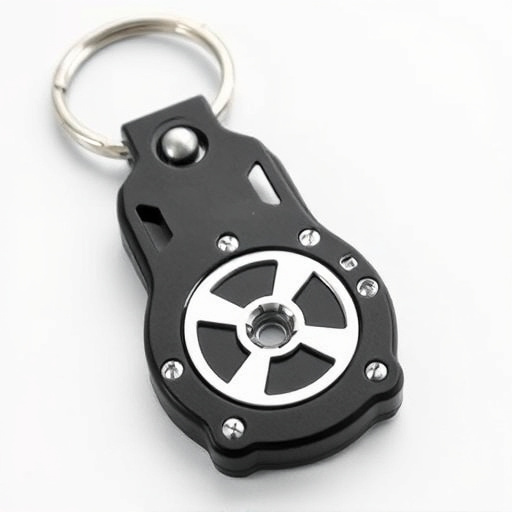Compact student defense keychain tools have varying legal status across US jurisdictions, governed by state and federal laws. Legality depends on type, size, potential danger, and usage context. Students must research local regulations, adhering to restrictions on weapon carrying, as these tools are intended for last-resort self-defense in dangerous situations. Effective use requires understanding both state laws and school policies regarding compact student defense keychain tools.
“Uncover the legal aspects of carrying self-defense keychain tools with our comprehensive guide. In today’s world, compact student defense keychain tools offer a convenient way for individuals to protect themselves, but understanding the legal framework is essential. We explore the legal definitions and regulations surrounding these devices, focusing on state-specific laws. From the rights and responsibilities of students to limitations and restrictions, this article ensures you’re informed about navigating self-defense keychain tools in various settings.”
- Legal Framework for Self-Defense Tools
- Student Rights and Responsibilities
- Keychain Device Limitations and Restrictions
- State-Specific Regulations and Exemptions
Legal Framework for Self-Defense Tools
In many jurisdictions, the legal framework surrounding self-defense tools, including compact student defense keychains, is governed by a combination of state and federal laws. These regulations vary significantly from one region to another, with some states having more liberal policies towards personal protection devices while others maintain stricter controls. Key factors that determine legality often include the type of weapon, its size and potential danger, as well as the specific circumstances under which it may be used.
For instance, compact student defense keychains are typically considered less lethal self-defense tools due to their minimal impact and limited range. Many states allow these devices for personal protection without a permit or license, especially if they are designed primarily for self-defense purposes rather than offensive ones. However, it’s crucial for individuals to understand and adhere to local laws, as some areas may impose restrictions on the carrying of any kind of weapon, even those intended for personal safety. Regular updates on legal requirements are essential to ensure compliance and avoid potential legal consequences.
Student Rights and Responsibilities
When carrying a compact student defense keychain tools, it’s crucial to understand both your rights and responsibilities as a student. These tiny yet powerful devices can provide a sense of security on campus, but they also come with legal considerations. Students have the right to self-defense within certain boundaries, and many states have specific laws regarding the use of personal protection tools in educational settings.
It’s important to be aware that schools often have their own policies regarding self-defense tools, and these policies may differ from state regulations. Students should review their school’s code of conduct and understand the consequences of breaking these rules. Additionally, responsible students should ensure their keychain tools are used appropriately and only as a last resort when facing a dangerous situation.
Keychain Device Limitations and Restrictions
While compact student defense keychains offer a convenient way for individuals to carry self-defense tools, it’s crucial to understand their limitations and any legal restrictions that may apply. These small devices often include features like pepper spray, alarms, or tactical flashlights designed to startle an assailant. However, they are typically limited in their physical impact and range, with some states having specific laws regarding the use and carrying of such tools.
For instance, certain states have restrictions on the type and amount of force that can be used in self-defense, which directly impacts the effectiveness of a compact student defense keychain. Some states also mandate that users have a reasonable belief in an imminent threat before deploying these devices, ensuring they are used responsibly. Additionally, age restrictions may apply, with some keychains being restricted to individuals over a certain age due to legal considerations and potential misuse by minors.
State-Specific Regulations and Exemptions
When considering a compact student defense keychain tool, it’s crucial to understand that legal requirements vary significantly from state to state in the US. What’s permitted in one state might be restricted or illegal in another. These variations stem from individual state laws and regulations regarding self-defense tools, including keychains. For instance, some states allow certain types of compact defense tools like pepper spray or stun guns, while others have strict restrictions on their carrying and use.
Exemptions also play a significant role. Many states offer exemptions for individuals with valid concealed carry permits or specific law enforcement-related credentials. Additionally, certain situations, such as self-defense or protecting property, might be considered legal justifications for carrying a self-defense keychain tool. It’s essential to research and understand these state-specific regulations to ensure compliance with the law. Remember that the right tools can provide peace of mind, but it’s vital to use them responsibly and within the boundaries set by your local legislation.
When it comes to carrying compact student defense keychain tools, understanding your state’s legal framework is paramount. The article has explored the legal aspects, student rights, and specific regulations governing these devices. While keychain self-defense tools offer a convenient option for personal safety, it’s crucial to stay informed about any limitations or restrictions in your area. Navigating these legal requirements ensures you remain compliant and can effectively protect yourself in unforeseen situations, leveraging state-specific exemptions when applicable. Remember that staying aware and prepared is key to ensuring your safety while on the go.
